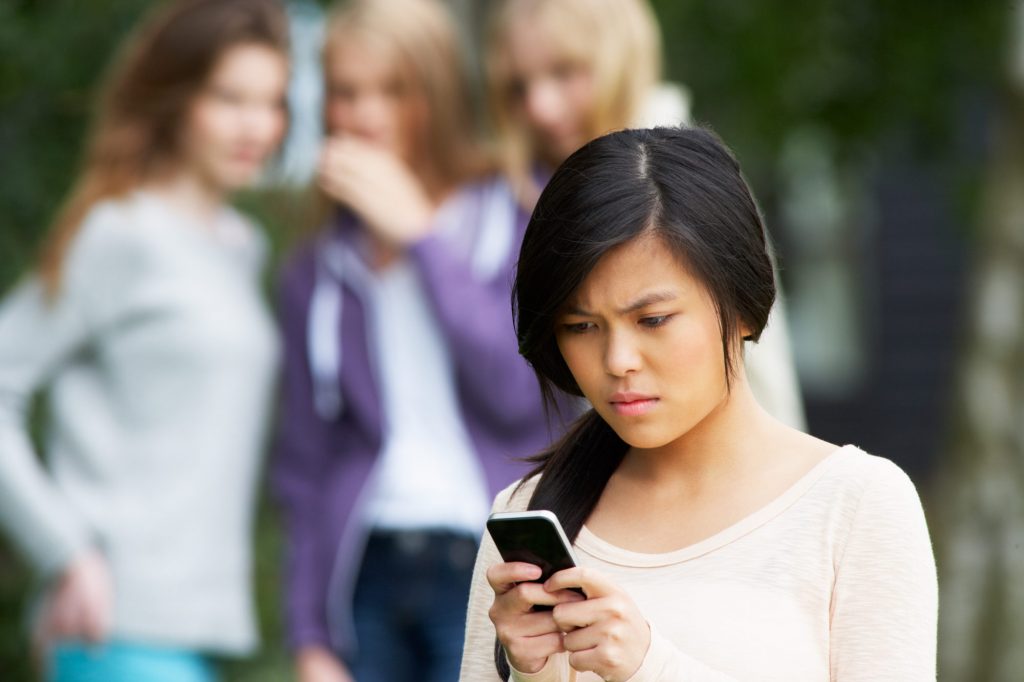National Bullying Prevention Month is an annual designation observed each year in October. The idea is for concerned parents, teachers, other concerned adults and students, too to take a stand against bullying. Supporters are encouraged to spread the word about the negative effects bullying can—and has—caused.
The hashtag #BullyingPreventionMonth has been created for use on social media.
After a month or more being back in school, most students will admit to behind happy with their return. But others are frightened and intimidated with the idea of entering their school, because of bullying. Even if a student wasn’t bullied in prior years, bullying can happen anytime in almost any environment.
But school is an especially prevalent location.
The reason? Bullying.
School bullying: a common occurence
- 22%– or nearly one out of every four students—reported having been bullied sometime during the school year.
- The majority of children who are bullied (64 percent) did not report the bullying.
- The reasons most commonly reported by students for being bullied were looks (55%), body shape (37%) and race (16%).
What constitutes bullying?
Bullying has been around for a long time—the first use of the verb came to use in the 1700s, and the act of bullying itself originated even earlier than that. But today some are describing an ‘epidemic’ of bullying, which is defined by the Centers for Disease Control & Prevention (CDC) as “an attack or an attempt at intimidation that intends to cause fear, distress, or harm.”
And harm bullying can cause indeed, including the disturbing instance of being literally bullied to death, as was the case with three young persons: Jamey Rodemeyer, 14, Tyler Clementi, 18, and Phoebe Prince, 15 who all took their own lives after instances of bullying.
Bullying can include actions such as teasing, threats, stalking, or intimidation. Sometimes bullies cause public or private humiliation or even physical violence against their victim. And for anyone who thinks any act short of real physical violence should fall under the ‘kids will be kids’ umbrella, they should be aware of Florida Statute 1006.147.
Florida law specifically mentions all of the above actions under the state’s legal definition of bullying. That means that Florida school kids who tease or threaten, who publicly or privately humiliate, or who stalk someone can be charged under Florida law and be convicted as bullies.
Florida defines “Bullying” as ‘systematically and chronically inflicting physical hurt or psychological distress on one or more students…’
Florida’s legal definition also extends to ‘cyberbullying,’ with a legal definition of ‘bullying through the use of technology or any electronic communication’ such as email, internet communications, instant messages, even FAX. Bullying is viewed as serious under the law, and may even constitute a civil rights violation.
 Risks of Bullying
Risks of Bullying
Bullying may cause psychological pain, but even if it stops short of physical violence, evidence shows that its effects can be serious on all involved: Bullied students have an increased risk for sleep difficulties, anxiety, and clinical depression, while the bully themselves have an increased risk for school performance problems, substance abuse, and violent behavior later in life. Higher levels of suicide-related behavior are reported in both bullies and students who are bullied—even by those who are simply witnesses to bullying: Yale University study found a 7 to 9 per cent higher likelihood among bullied children to consider suicide.
Avoiding Having a Bully or a Bullied Child
Talk with your child or children about bullying. They should not it is serious—for everyone involved. No one wants to be known as a bully, nor be bullied—and definitely no one wants to be arrested and convicted under state bullying laws.
Let your child know:
- Not to watch someone being bullied
- Bullies love an audience, so don’t watch.
- Instead, leave and get help
- Include the bullied person in your group of friends.
- Bullies tend to pick on students perceived as loners.
- Some bullies themselves are lonely, which can lead to bullying actions
- Confront the bully.
- A student should not confront the bully physically, but talking with the bully about their behavior may stop the problem.
What you don’t want to do is ignore the problem; this risks a student’s well-being, sense of belonging, and may even lead to one of the suicides attributed to bullying. It’s what you do—along with Florida anti-bullying laws—that can make a difference in the lives of schoolchildren, and perhaps even save a life.
If you or a loved one has been injured by the actions of a bully, the attorneys at Thomas and Pearl want to speak to you.
$150 MILLION in verdicts and settlements
Thomas & Pearl attorneys have the skills and training, plus the financial resources necessary to conduct a thorough injury investigation.
Ask about the more than $150M (MILLION) dollars in recent and past jury verdicts and settlements we have gained for our clients.
We’ll evaluate your case situation with you, develop a strategy to win or successfully negotiate the highest amount of compensation for you.
Experienced legal help can make the difference between a successful resolution and losing.
And you pay nothing unless we get that successful resolution for you.
Contact Thomas & Pearl at any time.





